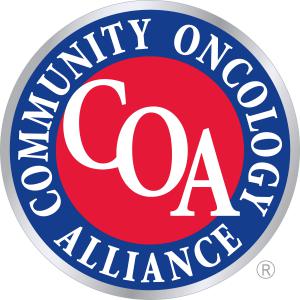Community Oncology Alliance Compendium Compiles Latest Updates on Biosimilars in the U.S. Cancer Care Market
COA White Paper Provides Comprehensive Reviews of Data, Evidence, and Barriers to Biosimilar Adoption in Oncology
• Read the COA Biosimilars Compendium.
Biological drugs have transformed the way patients with many serious diseases, especially cancer, are treated. As expensive biologic drugs lose their patent protection, there has existed an opportunity for the introduction of “biosimilar” drugs, copies of a biologic medicine that is similar, but not identical, to the original medicine. Today, there are 37 approved biosimilars and 22 launches, with the majority for the treatment of cancer or supportive therapies, and numerous others scheduled to enter the U.S. market in the coming years.
The use of lower cost biosimilars has long been seen as a solution to cutting health care spending in the U.S. However, despite oncologists strongly embracing the use of biosimilars, particularly in independent community oncology practices, numerous obstacles have emerged to stymie their uptake. Notably, some pharmacy benefit managers (PBMs) and payers require the use of more expensive originator biologics because they often receive larger rebates from the more expensive products. The same has been found to be true for the close to half of U.S. hospitals participating in the 340B Drug Pricing Program. A COA study found that 340B hospitals often do not even carry biosimilars because they can realize much higher profits from utilizing the more expensive originator biologics.
The COA Biosimilars Compendium aims to serve as a resource to stakeholders interested in better understanding and advancing biosimilar adoption. COA is committed to advancing knowledge and acceptance of biosimilars as an important, promising element in reducing drug costs and overall health care spending, and the financial toxicity of cancer care for patients. Numerous reforms are needed to truly realize the success of biosimilars, and COA is actively working to advance those with policymakers, manufacturers, payers and employers, and other advocacy, patient, and policy organizations.
Read the full compendium The Promise of Biosimilars in Cancer Care and Reality of the U.S. Market: A Look at the Data and Evidence to Date online at https://communityoncology.org/reports-and-publications/studies-and-reports/the-promise-of-biosimilars-in-cancer-care-and-reality-of-the-u-s-market/.
###
About the Community Oncology Alliance: The Community Oncology Alliance (COA) is a non-profit organization dedicated to advocating for community oncology practices and, most importantly, the patients they serve. COA is the only organization dedicated solely to community oncology where the majority of Americans with cancer are treated. The mission of COA is to ensure that patients with cancer receive quality, affordable, and accessible cancer care in their own communities. More than 1.5 million people in the United States are diagnosed with cancer each year and deaths from the disease have been steadily declining due to earlier detection, diagnosis, and treatment. Learn more about COA at communityoncology.org.
Drew Lovejoy
Community Oncology Alliance
email us here
Legal Disclaimer:
EIN Presswire provides this news content "as is" without warranty of any kind. We do not accept any responsibility or liability for the accuracy, content, images, videos, licenses, completeness, legality, or reliability of the information contained in this article. If you have any complaints or copyright issues related to this article, kindly contact the author above.

